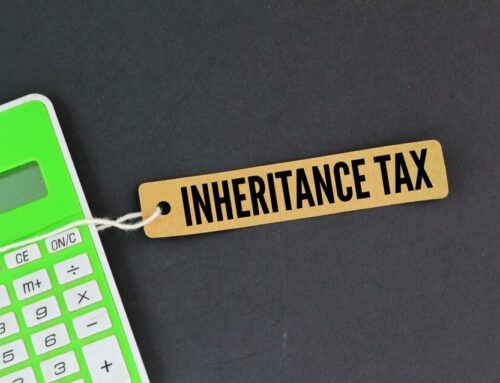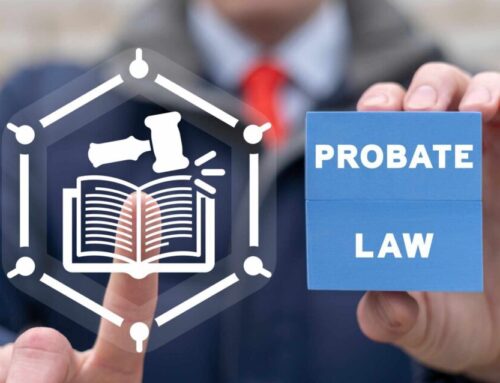The law of probate can be a complicated area to delve into, especially if it’s during a time when something deeply distressing has happened, like the loss of a loved one. On top of everything else you have to deal with, it can seem trivial to worry about your loved one’s possessions. But it’s important to have an understanding of the process, as it has to be dealt with at some point.
There are unfortunate circumstances in life where we may hear words like probate, executors/administrators, beneficiaries, trustees, and suddenly we’re lost in a world of terminology and processes we’ve never heard of.
We’ve written up this guide to tell you everything you need to know about probate, the process and the people involved. It’s worth mentioning that if you have specific questions, contacting one of our probate solicitors is your best option. However, if you’re looking for an overview, then you’re in the right place.
What Is Probate?
In the simplest form, probate is the distribution of somebody’s estate when they die. This includes things like money, possessions, and property.
If the deceased person has left a Will, their estate will be distributed in accordance with their wishes. If someone hasn’t left a Will, the law will follow something called the rules of intestacy to determine how the estate will be split.
You should seek legal advice if you’re ever in doubt about whether or not you need a grant of probate. In most cases however, people need to apply for a grant of probate if the deceased person had the following:
- An estate more than £5,000
- Has stocks and shares
- Owned property or land
- Certain insurance policies
Each estate is different, but in general the parties involved are similar.
Who Is Involved In The Process?
There are few people who may be involved in the probate process. These include but are not limited to:
- Executor – Also known as an administrator or personal representative. If the person who’s passed away has left a Will, they will name an administrator. This person or people are legally responsible for dealing with the deceased’s estate. They can be a friend, family member or legal professional.
- Trustees – If the Will has a Trust, for example a Property Trust, then Trustees will be appointed to look after the Trust asset for the beneficiaries.
- Beneficiaries – These are people who are going to receive inheritance from the deceased’s estate.
- A Legal Expert – In many cases, the administrator of the Will can act without a lawyer. However, it’s always advisable to get legal advice. There are many steps in the probate process, and getting support will ensure nothing is missed. This is especially important if the estate is complicated, or disputes arise.
Like previously stated, most of the roles and responsibilities of each person will be outlined in the Will itself. If someone hasn’t left a Will, the process is slightly different. Either way, the person who is dealing with the estate needs legal permission to access bank accounts, sell assets, settle debts, and distribute the estate.
What Is A Grant Of Probate?
If the person’s estate meets the criteria listed above, before an executor can start the process of probate, they need to be granted legal access. The person’s death needs to be registered, a death certificate acquired, and then they need to apply for a grant of probate.
A grant of probate is a sealed document allowing the executors or personal representatives permission, from the court, to deal with the deceased estate. This document is only called a grant of probate if the person has left a Will. If not, they are called letters of administration, which effectively do the same thing. However, oftentimes both are referred to as a grant of probate.
Can You Get Probate If There Is No Will?
You can apply for probate if someone hasn’t left a Will, but it’s more complex as the person who died hasn’t stated who they would like to deal with their estate. The Administration of Estates Act 1925, sets out who can apply for probate. This is usually a close relative, but it can be more than one person.
Once the person has been appointed, they can apply for the grant of administrations. This will allow them to gain access to the person’s estate. It will be distributed following the rules of intestacy, which is essentially where the law decides who will inherit the estate.
Can You Contest a Will?
Contesting a Will, or contentious probate, is when someone disagrees with the distribution of the assets, or they feel the Will isn’t valid. For example, this could be because they believe the person was not of sound mind when they wrote the Will, which would bring its credibility into question. There are many other reasons that someone might contest a Will, including the ones outlined in the Inheritance (Provision for Family and Dependents) Act 1975.
Whatever the grounds are, it’s worth noting that the law is in favour of the wishes of the deceased. This means if they left a Will and it’s not what their loved ones were expecting, they still need appropriate grounds to contest it, rather than just being unhappy with the outcome.
If someone is thinking of challenging the validity of someone’s Will it should be done as soon as possible, as if it is done after probate has started, it becomes considerably more complicated. If the deceased person hasn’t left a Will, and a person feels they should have been entitled to inherit some of their estate, you can also challenge probate.
Although it is not compulsory, having the correct advice from a contentious probate solicitor is the best port of call, as it will increase the chances of a successful outcome.
The Stages Of Probate
When it comes to probate, every Will and every estate is unique. This means each probate process will differ depending on the circumstances. The process can be prolonged or more complex if disputes arise, which adds another layer of complexity. It’s useful to find out at the earliest convenience if the person who has died left a Will, which will help things along.
That being said, the basic process of the executor is as follows:
- Get all the information about the estate, this includes obtaining date of death balances for all assets and liabilities.
- Submit IHT 400 form to HMRC for Inheritance Tax calculation (if applicable)
- Pay Inheritance Tax Liability
- Apply for a grant of probate
- Pay any inheritance tax that’s due
- The grant of probate will be received
- Gather all assets
- Pay any outstanding debts of the deceased
- Distribute the remainder of the estate in accordance with the wishes of the Will.
Following this process might sound simple, but it can be overwhelming, even more so if there are complications. Using a probate solicitor can offer assistance, ensure the administrators are protected, and make sure the estate is distributed correctly.
Navigating probate is no easy feat. When dealing with grief, it can feel like an added burden to think about managing their loved ones’ affairs. There are many steps, people, and forms involved, which is a lot to think about.
We’re here to help you. Our team of probate solicitors can help you from the very beginning, and make sure everything is in order. This will give you peace of mind and the space you need to deal with everything else. Get in touch today via our enquiry form.





